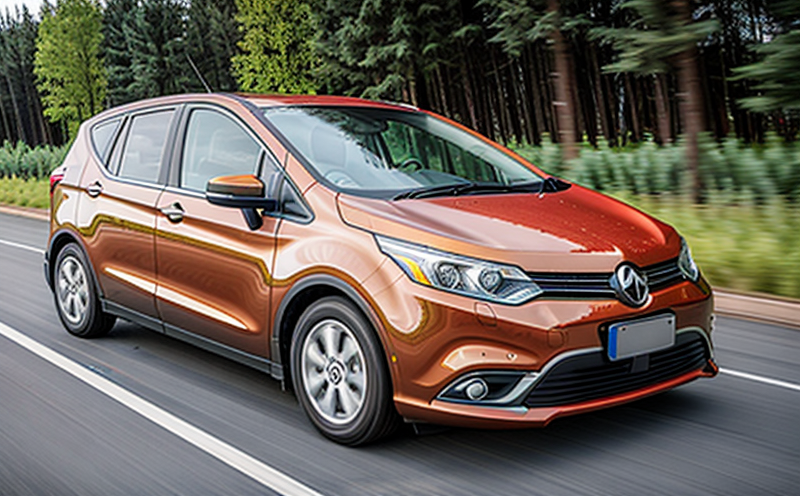Testing the resistance of vehicle body panels to low-speed collisions
The Crucial Role of Testing Vehicle Body Panels to Low-Speed Collisions Ensuring Safety and Compliance
As the automotive industry continues to evolve, manufacturers are under increasing pressure to prioritize safety while also meeting stringent regulatory requirements. One critical aspect of vehicle design that often goes overlooked is the resistance of body panels to low-speed collisions. This laboratory service, provided by Eurolab, is essential for businesses seeking to ensure their vehicles meet the highest standards of safety and compliance.
What is Testing the Resistance of Vehicle Body Panels to Low-Speed Collisions?
Testing the resistance of vehicle body panels to low-speed collisions involves subjecting vehicle components to controlled impacts at speeds typically between 5-15 km/h. This process simulates real-world scenarios, such as parking lot or garage accidents, where vehicles may come into contact with other objects or collide with each other. The goal of this testing is to evaluate the ability of body panels to absorb and distribute forces without compromising structural integrity.
Why is Testing the Resistance of Vehicle Body Panels to Low-Speed Collisions Essential for Businesses?
The consequences of inadequate low-speed collision resistance can be severe, including
Financial penalties Failure to meet regulatory requirements can result in costly fines and reputational damage.
Customer dissatisfaction Vehicles that do not perform well in low-speed collisions may lead to decreased customer satisfaction and loyalty.
Increased liability Vehicles with compromised safety features may expose manufacturers to increased liability in the event of accidents.
Advantages of Using Testing the Resistance of Vehicle Body Panels to Low-Speed Collisions
By utilizing Eurolabs laboratory service, businesses can reap numerous benefits, including
Enhanced Safety Features Ensure that vehicle body panels meet or exceed regulatory requirements for low-speed collision resistance.
Improved Structural Integrity Evaluate the ability of body panels to absorb and distribute forces without compromising structural integrity.
Reduced Liability Minimize the risk of financial penalties and reputational damage associated with inadequate safety features.
Increased Customer Satisfaction Vehicles that perform well in low-speed collisions contribute to increased customer satisfaction and loyalty.
Cost Savings Identify and address potential design or manufacturing issues before they result in costly recalls or redesigns.
Benefits of Testing at Low-Speed Collisions
Testing vehicle body panels at low speeds offers several advantages over higher-speed testing, including
Increased accuracy Simulates real-world scenarios more accurately than high-speed testing.
Reduced risk Minimizes the risk of damage to test equipment and personnel.
Cost-effective Reduces the cost associated with testing and development.
Benefits of Using Eurolabs Laboratory Service
Eurolabs state-of-the-art facilities and experienced staff provide a range of benefits, including
Expertise Our team has extensive knowledge and experience in testing vehicle body panels to low-speed collisions.
Accreditation Our laboratory is accredited to international standards, ensuring the highest level of quality and accuracy.
Flexibility We offer customized testing protocols to meet specific client requirements.
QA Section
What types of vehicles can be tested?
Eurolabs laboratory service is suitable for a wide range of vehicle types, including passenger cars, trucks, buses, motorcycles, and more.
How long does the testing process take?
The duration of the testing process varies depending on the specific requirements of each client. Our experienced staff will work with you to develop a customized testing plan that meets your needs.
What are the typical speeds used for low-speed collision testing?
Typical speeds range from 5-15 km/h, simulating real-world scenarios such as parking lot or garage accidents.
Can I request specific testing protocols or procedures?
Yes. Eurolab offers customized testing protocols to meet specific client requirements. Our experienced staff will work with you to develop a tailored plan that meets your needs.
How do I know if my vehicle design is suitable for low-speed collision resistance?
Eurolabs expert team can evaluate your vehicle design and provide recommendations on how to improve its performance in low-speed collisions.
Conclusion
Testing the resistance of vehicle body panels to low-speed collisions is a critical aspect of vehicle design that cannot be overlooked. By utilizing Eurolabs laboratory service, businesses can ensure their vehicles meet the highest standards of safety and compliance while minimizing financial penalties and reputational damage. With our expertise, accreditation, and flexibility, you can trust Eurolab to provide comprehensive testing solutions tailored to your specific needs.
About Eurolab
Eurolab is a leading provider of laboratory services for the automotive industry, dedicated to delivering high-quality testing solutions that meet or exceed regulatory requirements. Our team of experts has extensive knowledge and experience in testing vehicle body panels to low-speed collisions, ensuring your vehicles are safe, compliant, and ready for market.




